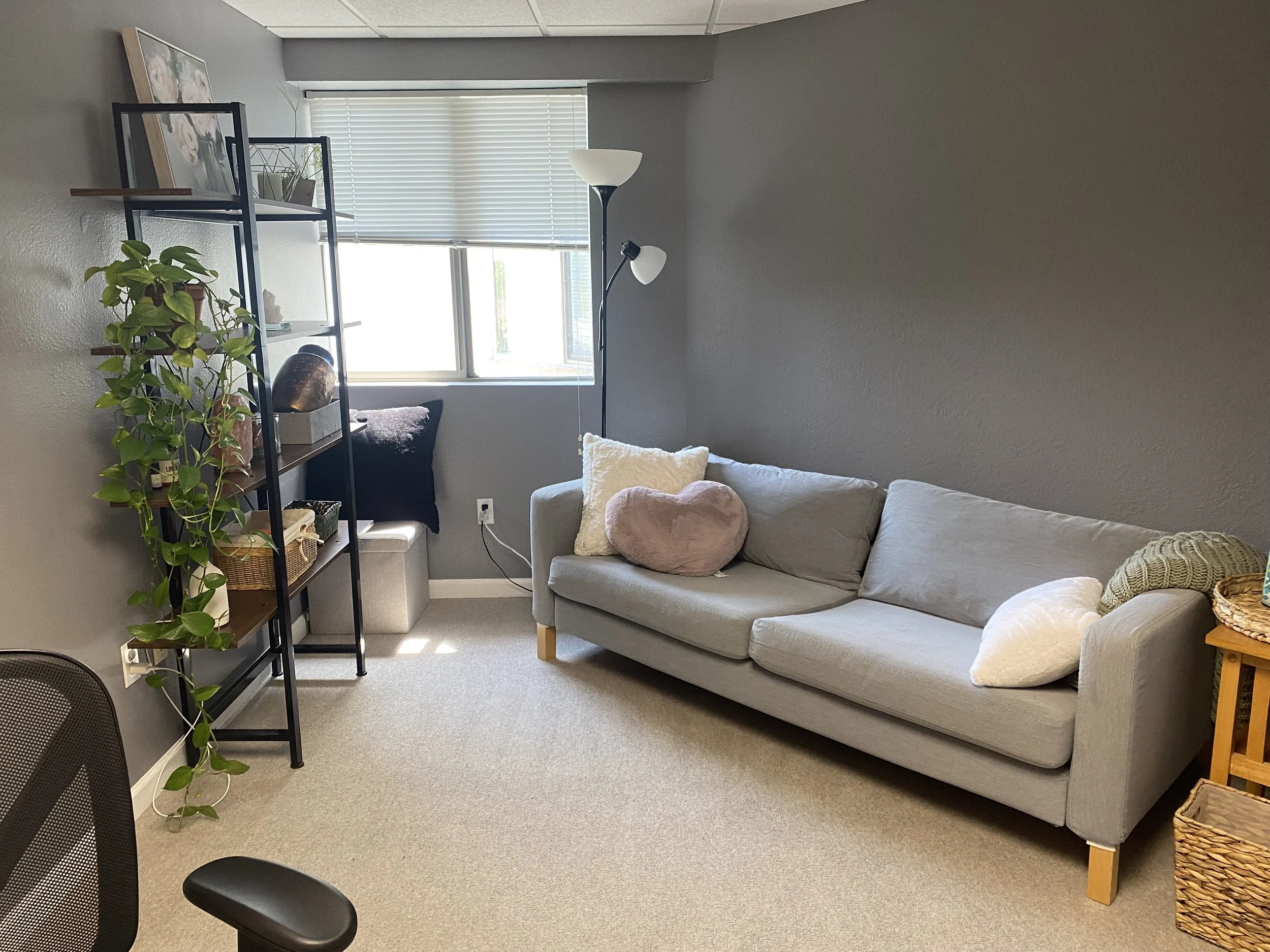
Couples therapy
Another Terrible Fight
You always say that! Ugh, you don’t understand! When did this get so hard? It’s that little thing again, and suddenly your partner is the enemy. You spin and try to push your frustration aside, but it’s stronger than ever. These moments can feel so hopeless, and even though you care about your partner, it’s difficult to access even a modicum of compassion for them.
Perhaps you’re navigating a new chapter in relationship together. The birth or adoption of a child, the death or illness of loved ones or family members, marriage, moving or career changes can all impact the balance and level of connection we feel in intimate relationships. Without the tools, practice and guidance in relating well to each other again, the relationship could be in jeopardy.
I’m glad you’re here
First, I’d like to appreciate you taking this step towards improving your relationship. It’s not easy to ask for help, and particularly around getting support in relationships there can be a lot of shame. Somehow in our culture we have baked-in ideas about relationships that are inaccurate. Ideas like, ‘It shouldn’t be this much work,’ or ‘he’s the problem.’ Though these things might feel (very) true in the moment, they aren’t particularly helpful in moving you through conflict well. Beginning to learn about how therapy can help and what it will take to move your relationship in a healthy direction is a courageous step.
My values and beliefs in Couples Counseling
Relationships are some of the hardest things we’ll do as humans. Every relationship has rough patches, periods of disconnection, and times you won’t like your partner.
Conflict is normal and can be done in a healthy way that promotes connection.
We learn behaviors from our early, young environments that shape, consciously and unconsciously how we behave, perceive, react, think, feel in adult relationships.
At the start of relationships, we may project positive qualities onto our partners that fill in the blanks. Later in relationships, we might begin to be more triggered by the small things that were either attractive or didn’t matter before. Learning to work with triggers in relationship is valuable in terms of personal growth and transformation individually and relationally.
Our culture & media portray romantic relationships in an unrealistic and non-inclusive light that can in turn impact our perceptions of our relationships and the automatic assumptions we make.
It’s possible to identify patterns that impact your relationship, and heal old wounding together so that your bond becomes stronger, more resilient and connected.
We can learn new habits, skills, and ways of being in order to show up fully; to love and be loved more freely in our relationships
No matter how long you’ve been together, what your issues are and how contentious interactions have become, with some motivation, consistency and the right kind of therapeutic support, change is possible.
How I practice Couples Counseling
My role as therapist includes a number of things when I work with couples. A primary objective of mine is providing emotional support and education around healthy habits in relationships. We’ll learn about nervous system regulation and how it underlies effective communication and productive conflict. We’ll use mindfulness to grow awareness of patterns, behaviors and emotions in order to help you move skillfully through rocky terrain. This is a sacred and valuable process that can occasionally tip towards discomfort and emotional vulnerability. I am to help all members feel heard and understood, while simultaneously challenging each member of the couple to grow in compassion and take accountability.
Couples therapy with me involves remembering back to family of origin to understand what did and didn’t get to happen, and how that plays a role in the current relationship. We will cultivate the gift of curiosity, for yourself and the other, and begin to move away from defending and into relating in a more grounded way. I will often slow my couples down when things get more intense and help them hear each other more deeply. We will involve the body and learn to listen to it’s communications as a layer of experience. I see the couples therapy process as an emotional unfolding, potentially into deeper levels of connection, intimacy and satisfaction.
My work with couples draws from a number of different sources. I use the Hakomi method, draw from Esther Perel’s philosophy, as well as incorporate elements of PACT, NVC and the Gottmans. I weave these teachings together in a unique way for every couple I work with.
The Hakomi method is body-based and centers mindfulness to help us understand the ways we might be limiting or protecting ourselves. Often these old strategies are outside of our awareness and can block connection, so seeing them clearly with compassionate, professional support is a must. NVC (Non-violent communication) provides a helpful signposts for self understanding, effective heart-based communication, and negotiating conflict with increased ease. Elements of PACT (Psychobiological approach to couples therapy) support an attachment-based lens through which couples learn to be a true team, and prioritize safety and belonging in partnership. The Gottman method and philosophy offers a number of evidenced-based and practical tools and perspectives that can help inform a new, healthy direction for couples.
Issues I support in Couples Counseling
Working towards healthy conflict Finding balance in the home, with work, or family, etc.
Intimacy and sexual issues Navigating boundaries with family
Addiction in relationship Strengthening connection and closeness
Improving communication and deepening understanding Working with triggers
Big life transitions and adjusting in relationship Attachment style issues
Navigating unmet needs Trauma in relationship
About this process and what to expect
If you have read this page and are interested in learning more about couples therapy with me, your next step is to complete the contact form, and I’ll reach out to schedule a free 20min phone consultation. We will use that time to get clear on what you’d both like support with, and how I can help. From there if everything feels like a good fit, we can schedule a first session together. We’ll discuss a number of things – your goals, therapy cadence and guidelines, and get started moving towards improving your relationship.
“Love is a vessel that contains both security and adventure, and commitment offers one of the great luxuries of life: time. [Commitment] is not the end of romance, it is the beginning.”
― Esther Perel, Mating in Captivity: Reconciling the Erotic and the Domestic


